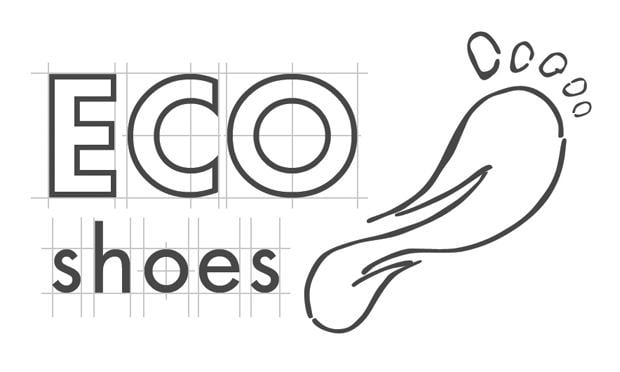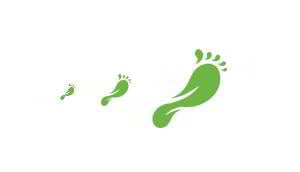How To Design a Logo Effectively and Painlessly
The key identity piece of any company branding is definitely a logo. It reflects a business’s commercial brand through the use of shapes, fonts, colors, images. And if it is a good logo, it can help you build loyalty between your business and customers, provide a correct visual representation of everything that company stands for. Logo design should be correct and immediate when interpreting, and it must render the essence of the business into the simplest of terms.
To get started creating an appropriate company logo, here are some tactics and considerations that might help you.
- First of all define what you are trying to convey through the logo. Focus on the company message, think about its character, strong features and key benefits, the nature of the current target audience. If you have a sense of what the company’s identity should be that will push you in the right direction of logo design style.
- Explore the logos of other companies in the given business sphere. Look for the effects, fonts, graphics they use. Think of the ways to make your logo unique in relation to competitors.
- Search for inspiration from leading logo gallery sites. In there, you are sure to find the range of helpful ideas to create something truly remarkable.
- Always choose clean, simple, and functional concepts. In general it’s better to keep the logo metaphor light. The main idea behind this is that you want the logo to be able to be scalable, easy to reproduce, memorable, and distinctive.
- Make sure that the logo you create will stay current for a longer time, since any redesign you will undertake may confuse the customers and alienate your audience.
- The logo you create should be compatible with multiple browsers, so don’t forget to check how it performs on other platforms, plus make sure that the logo colors are multiplatform friendly.
- While crafting the design of the logo, always save backup copies that can be edited. This may help in further adjusting of the logo style, but make sure you name the files in a consistent and clear manner.
Let’s now differentiate the logo types
There are certain choices to consider when deciding upon the logo design. We can distinguish three most basic types of logos each having their respective purpose. Remember that you should never limit yourself to one certain option, try different styles to eventually find the one that will perfectly fit the image of a company.
- There are font-based logos that are entirely composed of text. In this case, text logo performs the function of an image, being a certain type of symbol, and it’s remarkable that the type treatment in such logos can be strikingly different. The fonts may come in various shapes and sizes to convey a distinct emotion. Script, serif, thin, bulky and strong or whatever other typeface, it primarily displays the intended qualities of the company and usually tends to incorporate fewer effects or colors.
- The logos where the font type is mixed with the image frequently use a certain icon or graphic with the text. Such kind of a logo could be effectively implemented for the company that does not yet have a long history behind. With a brief amount of text or even an abbreviation along with some symbolic image, it helps to provide more clarity of what the business is all about.
- We can also come upon purely symbol-based logos that use a certain image to convey an actual or abstract representation of a company. Such logo may literally illustrate what the company does or may become an abstract graphic symbol that is linked to company's brand. Still, a logo image alone is less intelligible than text, therefore it may accept various interpretations and it is far less favorable for company branding.
Sketching multiple logo concepts
Before you start using computer to craft the logo, focus on your sketches first. It is a great way to loosen up and quickly flesh out multiple concepts and create variations to see what works and what doesn’t. Get a bit more spontaneous, note down all the keywords, doodles, diagrams and brainstorms, explore their combinations, rotations. Try to articulate the message you want the logo to convey, maybe write a one-sentence mission statement of a company to help focus the efforts. It is helpful to develop several good concepts before you begin using the computer to execute them.
Taking the sketch to design a vector-based logo
Once you’ve decided on the logo design, you are ready to begin crafting the digital logo files. The logo should be created in a vector-based illustration program, preferably in Adobe Illustrator, rather than a raster application such as Photoshop, for instance. This will allow for digital flexibility and easy rendering to all further applications. The logo will work thereby across a variety of media, plus a well-drawn vector-based logo design can be infinitely adjusted to any size without quality loss, whereas raster images that are made up of pixels will be blurred and distorted when the size is altered somehow. Besides, be sure to render various file types, including Ai, EPS and PDF files, and also differently sized JPEG or PNG images to facilitate the everyday logo use.
Sometimes, it's tempting to use some effects to give the extra level of prominence and make the logo stand out. Still, clean lines with very limited colors are almost always more effective than any complex 3d rendering, gradients, shadows, etc. Use new tricks and capabilities in vector based programs and it will give you the illusion of interesting effects with all the necessary boldness and contrast in rendering.
Color choice is of high importance in logo designing
Let’s now talk about the color choices. As it’s widely believed the color is a very important communicator that has a greater deal of impact. Being closely related to presenting key values of a company, color options should be carefully considered. To create a meaningful and concept-driven logo, it’s reasonable to make a thorough color study since the choice of logo coloring will have a ripple effect throughout all of the corporate material. Remember that the color may have that energy and boldness which can help separate the project against the bland competitors.
- Start off first in black and white to ensure that the logo will look good in its simplest form. It is highly important to see that the logo design works in mono format, because usually the logo itself is used in a huge range of mediums, including those which require it to be reproduced at small scale and in limited colors, for example as a one-color element for photocopying, faxing and other usage.
- As your logo would appear in a variety of environments embracing advertising, signage, stationery, packaging, make sure you explore your logo in one, two and three color versions.
- Another thing you need to be careful about as you consider color options is a value. We all know that the psychology and impressions that each color gives can dramatically alter the message and overall appeal of a design. So if you create the logo for an elite company, for instance, it must somehow reflect on the chic and stylish choice in the color tones. You may tend to use a rich variety of colors to have a gorgeous palette. That's where the catch is. When it comes to the media that only allow one or two colors, this can unfavorably alter the tone and intended message of a brand. The key point therefore is not to use more than three colors in logo designing.
Shapes and lines could add subconscious meanings
The logos may come in the variety of shapes and sizes, so try different styles. The basic shapes of squares, circles, and triangles can be very effective in logo design, plus you may group several together to form interesting patterns, disrupt a pattern with another shape or a shape out of alignment, replace letters with shapes that suggest them. Find out what any shape of lines can convey and make sure you try even small changes in line thickness, endings, connections, or shape changes and this can alter the look and feel of a design.
Consider the size
The logo needs to be reproduced at a variety of different sizes would it be a small 16×16 pixel favicon or mega-sized image. Test the logo by printing it in varying scales, take a look at the logo from different distances, and it will help create a logo that’s appropriate in terms of complexity.
Don’t forget about the aspect ratio
Think of the relationship between the height and width of a logo. Here it is highly advisable to have the golden mean rather than too tall and skinny, or too wide and short logos that are not often visually pleasing. You should end up with such a layout that is adaptable to working in other mediums.
See how the logo looks with surrounding text
It’s uncommon to see the logo totally alone, often it may come with the company tagline – that’s a phrase or few words that describe a company or its mission – or other text nearby. So it's better test the logo to see how it looks in different situations. The taglines may be featured elsewhere, you may justify the logo and text to the right, to the left, center it, and try out any other combinations. Plus, it’s always advisable to have the company tagline as a separate element that you can add when appropriate, so don’t include it in the initial design phases of your logo.
* * *
If you wish to save your time and money, you may purchase a ready-made professional logo design from our vast collection of Logo Templates.
Create a Logo!
Need an attractive logotype for your website, but have no way out? Professional web designers from MotoCMS will help you.
Our team will come up with the best solution for your brand according to your personal requirements. If the logo doesn't sit with your requests, we will redesign it up to 3 times.
Related Posts
- How to Design a Logo: 40+ Tutorials from Zero to Hero
- Get a Logo To Kill & Be Sure It Will [MotoCMS Logo Design Services]
- Are You Still Wasting Money on the Logo Design?
- Hipster-Friendly Logos that Won’t Look Lame in 2016 (with Free Examples)
- Develop Market Value and Give Your Brand Representation with Animal Logos
- Why Having a Great Corporate Logo Design Matters?
Logo Creation Offer from Moto CMS
Need an attractive logotype for your website, but have no way out? Professional web designers from MotoCMS will help you.
Your unique handmade logo will cost you $199 (if you get it together with a template) or $249 (if you purchase this offer as a standalone option.)
Get more to your email
Subscribe to our newsletter and access exclusive content and offers available only to MonsterPost subscribers.








Leave a Reply
You must be logged in to post a comment.